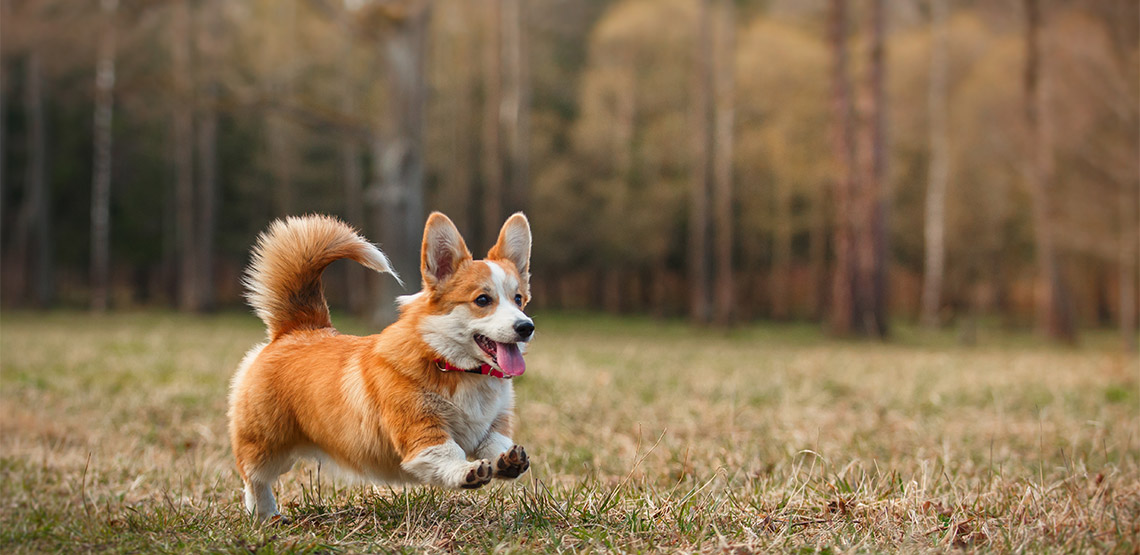A Complete Guide to Corgi Dogs
The Welsh corgi comes in two distinct breeds which are viewed as separate by the American Kennel Club: the Pembroke Welsh corgi and the Cardigan Welsh corgi. The former is more common and popular, having gained fame as the preferred breed of British monarch Queen Elizabeth II. These dogs are considered "aristocrats" in the canine world.
Appearance
Height: A Welsh corgi should stand 10 to 12 inches in height at the withers.
Weight: An adult shouldn't weigh more than 30 pounds.
Coat: Corgi dogs have a thick, short undercoat that provides excellent weather resistance. The Pembroke corgi also has a long, coarse topcoat, which has thicker fur around the chest, shoulders and neck.
Ears and Eyes: This breed has round eyes that are neither deep-set nor protruding and are colored in a shade of brown that matches the dog's coat. The triangular ears stand erect and react sharply to sounds.
Tail: Breeders now favor a short, natural bobtail, rather than docking the tails of Pembroke Welsh puppies.
Disposition
Originally bred as herding dogs, Welsh corgis are very protective and loyal. The phrase "big dog in a small package" is often used to describe their temperament, though they're generally friendly towards humans. As with most hounds, including the beagle and dachshund, they tend to be very tolerant of young children.
AKC Group: Herding
Related Search Topics (Ads):
Training: A puppy should be kept away from other dogs until it's been properly trained. Like most other hounds, these dogs are intelligent but can get lost in themselves, especially when unleashed in the outdoors. Corgi breeders emphasize that owners should assert pack leadership during the training period.
Ideal Environment: These dogs display a range of activity levels, from energetic to lackadaisical. The former is happiest living somewhere it can run, play and hunt; the latter is perfectly happy in an urban apartment.
Health and Care
Feeding: The Pembroke corgi is prone to obesity. Feed it only what it needs, keeping its energy level in mind.
Grooming: As a double-coated dog, the corgi needs regular brushing. These dogs tend to shed a lot, but this can be moderated through spaying or neutering.
Exercise: Try to get a puppy used to plenty of exercise to prevent laziness in adulthood. Pembroke corgi experts stress the need to walk these dogs at least twice a day. This breed also loves to play fetch games.
Health Problems: Breeders are very good at testing for genetic issues that may affect the health of their corgi puppies. While this breed tends to be very healthy with few characteristic problems, they are subject to hip dysplasia and progressive retinal atrophy. Overweight dogs are at increased risk for canine diabetes and canine arthritis.
Average Lifespan: The average corgi lifespan is 10 to 15 years.
Finding a Pet Corgi Dog
Expect to pay between $400 and $700 for Pembroke Welsh corgi puppies of certified parentage when dealing with reputable breeders. Avoid giving business to puppy farms, as dogs are milled out under inhumane conditions, and these establishments don't usually give their puppies the canine vaccinations they need to ensure good health.
